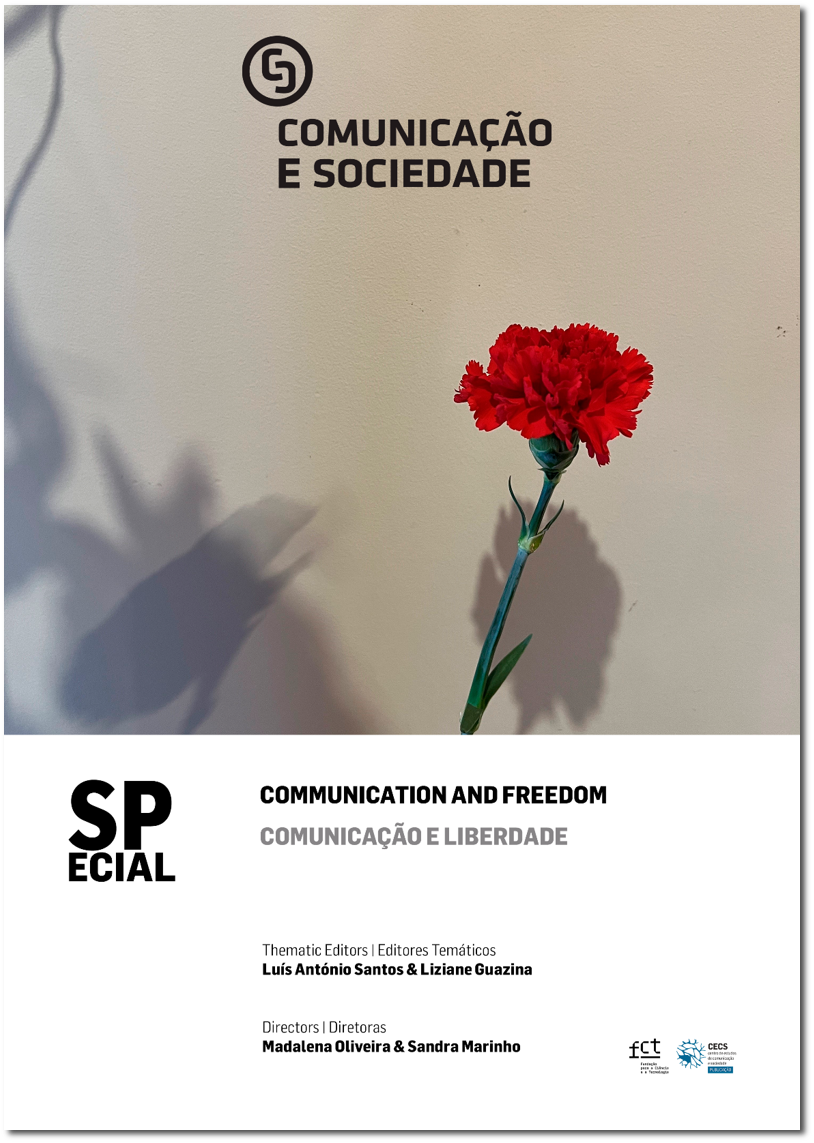Jorge de Sena, Freedom of Thought in the Media and the Portuguese-Speaking (Inter)Cultural Community
DOI:
https://doi.org/10.17231/volesp(2025).5493Keywords:
Jorge de Sena, media, freedom of thought, Portuguese-speaking (inter)cultural communityAbstract
Jorge de Sena (1919–1978), recognised as one of the most versatile Portuguese intellectuals of the 20th century, left a legacy that, as some scholars argue (Baltrusch, 2019; Santos, 2019), warrants deeper investigation to fully understand his impact on Portuguese-language cultural heritage. Outlawed by the Salazar regime, Jorge de Sena built an extensive body of work across Portugal, Brazil, and the United States, asserting his intellectual independence from an early age by resisting political affiliations, social patronage, and literary trends. While this defiance clashed with the oppressive regime that denied him a place to live in Portugal, it also enabled him to propose forward-thinking ideas, such as establishing a Portuguese-speaking (inter)cultural community. Thus, based on the observation that Jorge de Sena’s views on this community remain largely overlooked and have yet to be systematically explored and disseminated, we hypothesise that the media, through their treatment of this intellectual figure, are partially responsible for this lack of recognition. To test our hypothesis, we mapped, read, analysed, and interpreted various media content by or about Jorge de Sena from 1942 to the present, dividing this period into two phases: before and after April 25, 1974. Firstly, it is evident that during the dictatorial period, Sena consistently expressed his freedom of thought in the works he produced. Secondly, texts about Jorge de Sena written by other authors emphasise his life journey more than his intellectual contributions and legacy.
Downloads
References
Baltrusch, B. (2019). Sobre o poético e o político em Jorge de Sena. Santa Barbara Portuguese Studies, 7, 1–16.
Berger, P., & Luckmann, T. (1966). The social construction of reality: A treatise in the sociology of knowledge. Anchor Books.
Boschi, C. (2022). Antecedentes históricos da CPLP – Primórdios da comunidade. In L. B. da Silva Moreira & R. F. Tavares (Eds.), Nos 25 anos da CPLP. Estudos em homenagem a José Aparecido de Oliveira e Ricardo Arnaldo Malheiros Fiuza (pp. 31–55). Academia Mineira de Letras; Editora Del Rey.
Cunha, L., Macedo, L., & Cabecinhas, R. (2018). Flows, transits and (dis)connection points: Contributions toward a critical Lusophony. Comunicação e Sociedade, 34, 165–182. https://doi.org/10.17231/comsoc.34(2018).2942
Jackson, K. D. (2020). A grande peregrinação de Jorge de Sena. Revista Língua-Lugar, (2), 156–171.
Kovach, B., & Rosenstiel, T. (2014). The elements of journalism: Revised and updated. Three Rivers Press.
Lima, H. (2013). Meios de censura e formas de condicionamento do jornalismo na ditadura portuguesa. Media & Jornalismo, 12(23), 105–117.
Lourenço, J. F. (1987). O essencial sobre Jorge de Sena. INCM.
Lourenço, J. F. (1998). Nem eu delicadezas vou contando. Sobre a fortuna de Jorge de Sena nos anos 40. In Jorge de Sena 20 anos depois. O colóquio de Lisboa (pp. 141–158). Câmara Municipal de Lisboa; Edições Cosmos.
Macedo, L. (2023, 30 de março). Jorge de Sena em entrevista à Rádio Clube de Moçambique (19/07/1972). Desmitificar o passado e ultrapassar o nacionalismo para edificar uma cultura da língua portuguesa. Ler Jorge de Sena. http://www.lerjorgedesena.letras.ufrj.br/ressonancias/jorge-de-sena-em-entrevista-a-radio-clube-de-mocambique-19-07-1972-desmitificar-o-passado-e-ultrapassar-o-nacionalismo-para-edificar-uma-cultura-da-lingua-portuguesa/
Macedo, L., & Moreira, N. B. (2024). Jorge de Sena de olhos postos em África para uma comunidade (inter)cultural de língua portuguesa: Início de um itinerário intelectual. In C. Camponez & M. Oliveira (Eds.), Anuário internacional de comunicação lusófona 2023/2024 (pp. 16–35). CECS; Lusocom; Sopcom.
Mendonça, F. (2024). Metamorfoses de Camões na Costa Austral do Índico. Camões, Revista de Letras e Culturas Lusófonas, 28, 103–111.
Picchio, L. S. (2012, 16 de fevereiro). Jorge de Sena e a cor da liberdade. Ler Jorge de Sena. http://www.lerjorgedesena.letras.ufrj.br/ressonancias/24-jorge-de-sena-e-a-cor-da-liberdade/
Pontes, J. (Realizadora). (2005). O escritor prodigioso. Laranja Azul.
“Póstuma reconciliação com Jorge de Sena”. (2009, 12 de setembro). Diário de Notícias. https://www.dn.pt/artes/livros/postuma-reconciliacao-com-jorge-de-sena--1359832.html/
Sá, A. C. (2019). Acordar os vizinhos: Sobre os exílios de Jorge de Sena. Eutomia, 25(1), 125–141.
Santos, G. (2019). Jorge de Sena entre nós. Metamorfoses – Revista de Estudos Literários Luso-Afro-Brasileiros, 16(3), 22–26.
Sena, J. (1960). Andanças do demónio. Guerra & Paz. (Trabalho original publicado em 1942)
Sena, J. (1977, 2 de junho). A independência em Portugal paga-se com a vida [Excerto citado em Livrologia, “A independência em Portugal paga-se com a vida”]. Diário de Notícias.
Sena, J. (1988a). Estudos de cultura e literatura brasileira. Edições 70.
Sena, J. (1988b). Metamorfoses. Edições 70.
Sena, J. (2011). A comunidade de estados portugueses. In J. F. Lourenço (Ed.), Rever Portugal, textos políticos e afins (pp. 95–104). Guimarães Editora. (Trabalho original publicado em 1960)
Sena, J. (2023). Fidelidade. Assírio & Alvim. (Trabalho original publicado em 1958)
Silva, D. M. (2011, 29 de janeiro). Jorge de Sena e o Portugal Democrático. Ler Jorge de Sena. http://www.lerjorgedesena.letras.ufrj.br/ressonancias/jorge-de-sena-e-o-portugal-democratico/
Vieira, I. E. (2020). “Fazem cá um barulho com a morte do gajo!”: A morte de Jorge de Sena na imprensa portuguesa. In G. Santos, L. Ruas, & T. C. Cerdeira (Eds.), Sena & Sophia: Centenários (pp. 69–82). Bazar do Tempo.
Downloads
Published
How to Cite
Issue
Section
License
Copyright (c) 2025 Lurdes Macedo, Nuno Bessa Moreira, Vanessa Ribeiro-Rodrigues

This work is licensed under a Creative Commons Attribution 4.0 International License.
Authors own the copyright, providing the journal with the right of first publication. The work is licensed under a Creative Commons Attribution 4.0 International License.











